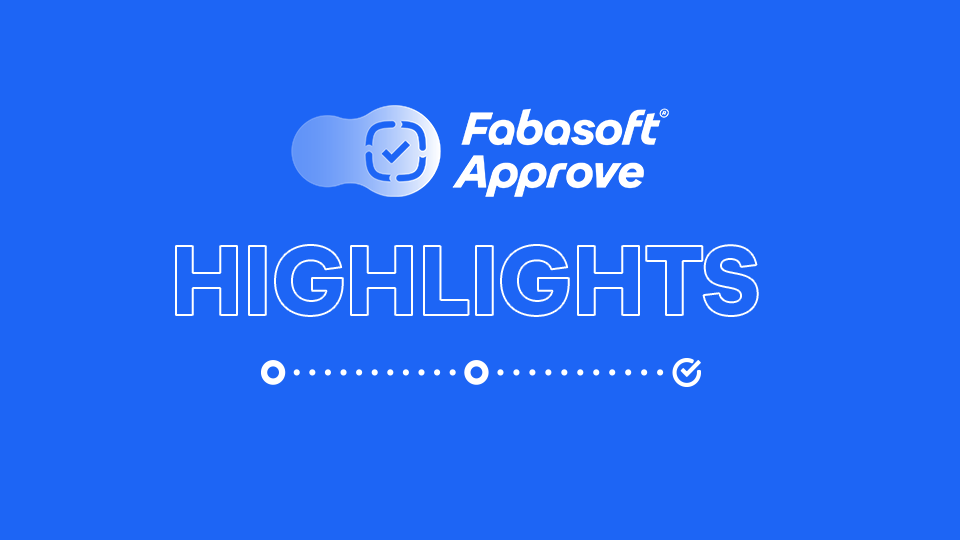When a company decides to digitalize its business processes, the impact on its bottom line is immediate. Numerous studies have demonstrated that companies that have achieved higher levels of digitalization prove to be more resilient in times of crisis1 and also generate up to three times more revenue growth2. Corporate decision-makers are moving forward in this direction like never before to ensure long-term competitiveness. In this context, focusing on digital contract management is one of the most effective options, as smart contract management products offer a number of benefits and provide maximum support for tackling the current challenges.
The “analog” options are limited
Conventional administrative practices such as paper archives and electronic filing structures typify analog contract management. Given their limited technological capabilities, such tools generate repetitive, time-consuming work for everyone involved in the process. With makeshift workarounds that include manually updating the contract lists and deadline calendars, managers can establish a modicum of oversight and control. Having to switch from one application to another raises the probability of errors, which in turn increases the risk. On top of all that, the informal processes that occur when the various departments and contractual partners collaborate with one another make it difficult to ensure traceability and transparency with regard to versioning and status.
Regulatory changes mean stricter requirements
When the General Data Protection Regulation was enacted in 2018, legal departments had to face an enormous amount of work, and many of them still look back on that process as having been a major operational project. And there is no shortage of present-day examples: Germany’s new supply chain law, which takes effect on January 1, 2023, will hold retailers and sellers liable for violations of human rights and environmental standards along the entire supply chain. The ensuing due diligence obligations for businesses are formidable, as are the impending financial penalties in the event of non-compliance. In Austria, the Warranty Directive Implementation Act (Gewährleistungsrichtlinien-Umsetzungsgesetz) was passed in the summer of 2021 based on the EU Directives Sale of Goods 2019/771 and Digital Content 2019/770. As of January 1, 2022, the act applies to all new contracts.
The ever-changing legislative requirements ultimately end up on the to-do lists of the contract managers and the other individuals involved. They then have to deal with tasks such as updating templates and finding the applicable agreements, along with adapting them to comply with the new regulations. One requirement of the new supply chain law is the obligation to respect human rights, along with provisions for monitoring compliance, the right to terminate a contract, and the right to seek compensation for damages in the event of violations. The accompanying tasks, which take on Herculean proportions in the analog domain, can typically be solved effortlessly using digital technology.
Clear overview using a “single source of truth”
The nucleus of any smart contract management tool is a central source that houses all of the information, documents, and correspondence. Customizable lists deliver an overview of the digital contract files. Broken down into metadata categories such as vendor, contract type, or contract expiration, these lists make finding the answers to commonly asked questions a whole lot faster and easier. A role-based authorization scheme means that managers in different departments have immediate access to the relevant documents whenever they need them.
Using keywords to locate what you need in an instant
Artificial intelligence (AI) not only recognizes and classifies contract data, it also helps to locate the required information from digital files swiftly. Intelligent semantic full-text searching delivers results drawn from the entire archive’s content the moment the user enters a keyword. This gives contract managers access to the contracts that need to be amended in a matter of seconds, saving them untold hours of work when compared with “analog” research.
Verified contract versions and traceable collaboration, even with external stakeholders
Digital contract management has the added benefit of ensuring that collaboration is both effectively organized and traceable. Cloud-based products that deliver the necessary capabilities off-the-shelf and in compliance with the most rigorous data protection and security regulations are the key to integrating internal and external players seamlessly. This eases the workload for both the in-house IT department as well as for virtually everyone else involved.
All documents are stored in protected data rooms in a central location. There, amendments and comments can be entered directly by the contracting parties in the relevant digital file. As a result, all changes are fully traceable. For instance, template collections and templates approved by the legal department bring certainty with regard to the correct document version and observance of any changes in legal regulations as early as the drafting stage. Once the agreement has been generated, the automatically triggered review, approval, and release processes provide for workflows that are transparent and revision-secure. This makes questions about specific versions, who is responsible for what, and the actual status a thing of the past.
Native advanced electronic signature capabilities in accordance with the eIDAS Regulation are yet another vital feature of modern contract management, making it possible to conclude an agreement without wasting time or taking a detour, whether at the home office or on the road.
Automated deadline management mitigates risks
With a view to achieving contractual potential while at the same time avoiding damage claims, active deadline management is an essential feature. With analog tools that force users to switch from one application to another, every amendment – such as a contract extension – involves a cascade of redundant synchronization activities and manual reminders that often introduce errors. State-of-the-art software provides a seamless connection between the calendar and the contract file. The integrated deadline management system factors in every deadline postponement and sends automated reminders to the people involved in a timely manner using e-mails and push notifications, even on mobile devices.
Digital contract management really pays off
Modern software tools offer an effective support to meet the challenges of today. Simply using a smart contract archive that includes intelligent search is enough to bring tangible added value to everyone concerned. What’s more, it yields benefits spanning the entire contract lifecycle, resulting in efficient operations, maximum transparency, and tighter control. And that keeps companies ahead of the competition, with an immediate impact on the bottom line.
Source: 1Federation of Austrian Industries 2020
Source: 2Die digitale Dividende – Studie 2021 | Accenture
|
Get started today. Try Fabasoft Contracts for free.
|
|
|




